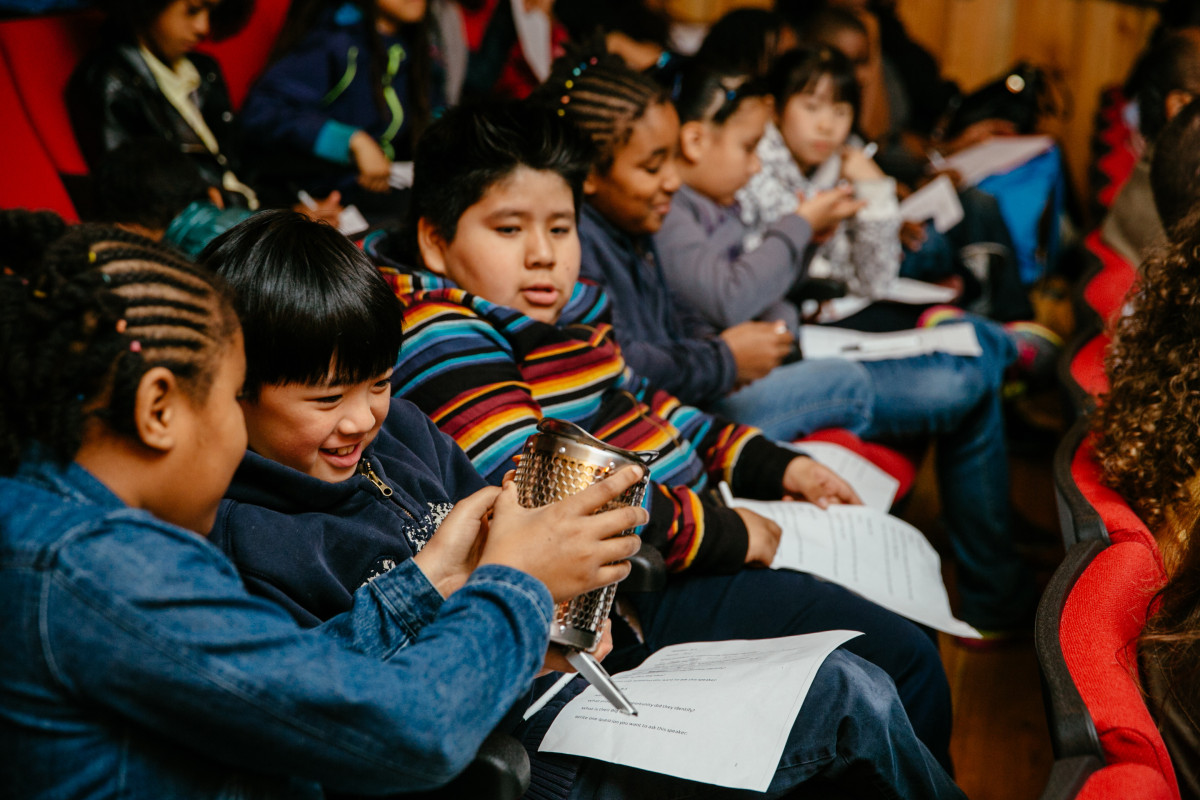Big Idea Week is a program run by local edtech company Flocabulary. It’s meant to show students the essence of entrepreneurship: identifying a problem, coming up with a solution, seeking feedback for your idea and iterating on it. The initiative needs many more tech-community mentors this year to run the program than it has needed in the past, because it has grown much larger. We reported on the final demos for Big Idea Week last year.
Become a mentor
“Big Idea Week was founded on the belief that we are all stakeholders in education,” Alex Rappaport, Flocabulary’s CEO said via email. “This includes members of the tech community, who are living, breathing examples of what you can do with those STEM skills you learn in school.”
In its first two years, the week only reached one school in Vinegar Hill, but this year’s Big Idea Week will also add Red Hook, Bed-Stuy, Ft. Greene and Williamsburg, plus two schools in Jamaica, Queens, according to a spokesperson. This is going to be a much larger event and the group needs people with expertise in more places.

Students go over their plan at the Made in NY Media Center before the Big Idea Week 2014 final presentation. (Photo by Tory Williams for Flocabulary)
As for potential mentors, the team behind the week is looking for product designers, engineers (web, civil, mechanical, electrical), architects and anyone with a technical role at a local company. The idea here is to give local students direct exposure to 21st-century skills. “That exposure is priceless,” Rappaport said.
Mentors are asked to commit by April 1. Big Idea Week is May 4-8, 2015.
Anton Ljunggren, design director at BioLite (whom we recently spoke with from Uganda), volunteered last year. He’ll be there this year, too.
“I was amazed by the courage and ease that most of them spoke with in front of what even for me was a intimidating crowd of brutally honest 4th graders,” Ljunggren said via email. “Many skillfully used humor to catch their classmates attention. The power of prototyping was also clear with teams making simple wire frames or paper mock-ups being more excited themselves and getting their friends interested too.”
The base commitment is an hour at one of the schools on Monday, May 4 and 90 minutes on May 8 for the demos. Volunteers that can visit schools during the week as students work on their projects get extra kudos.
Our observation from the previous round of demos was that the program wasn’t so much about making technically feasible projects as it was about getting students thinking like entrepreneurs, thinking about problem solving.

Students look at a BioLite CampStove at the Big Idea Week 2014 final presentation. (Photo by Tory Williams for Flocabulary)
Before you go...
To keep our site paywall-free, we’re launching a campaign to raise $25,000 by the end of the year. We believe information about entrepreneurs and tech should be accessible to everyone and your support helps make that happen, because journalism costs money.
Can we count on you? Your contribution to the Technical.ly Journalism Fund is tax-deductible.
Join our growing Slack community
Join 5,000 tech professionals and entrepreneurs in our community Slack today!
